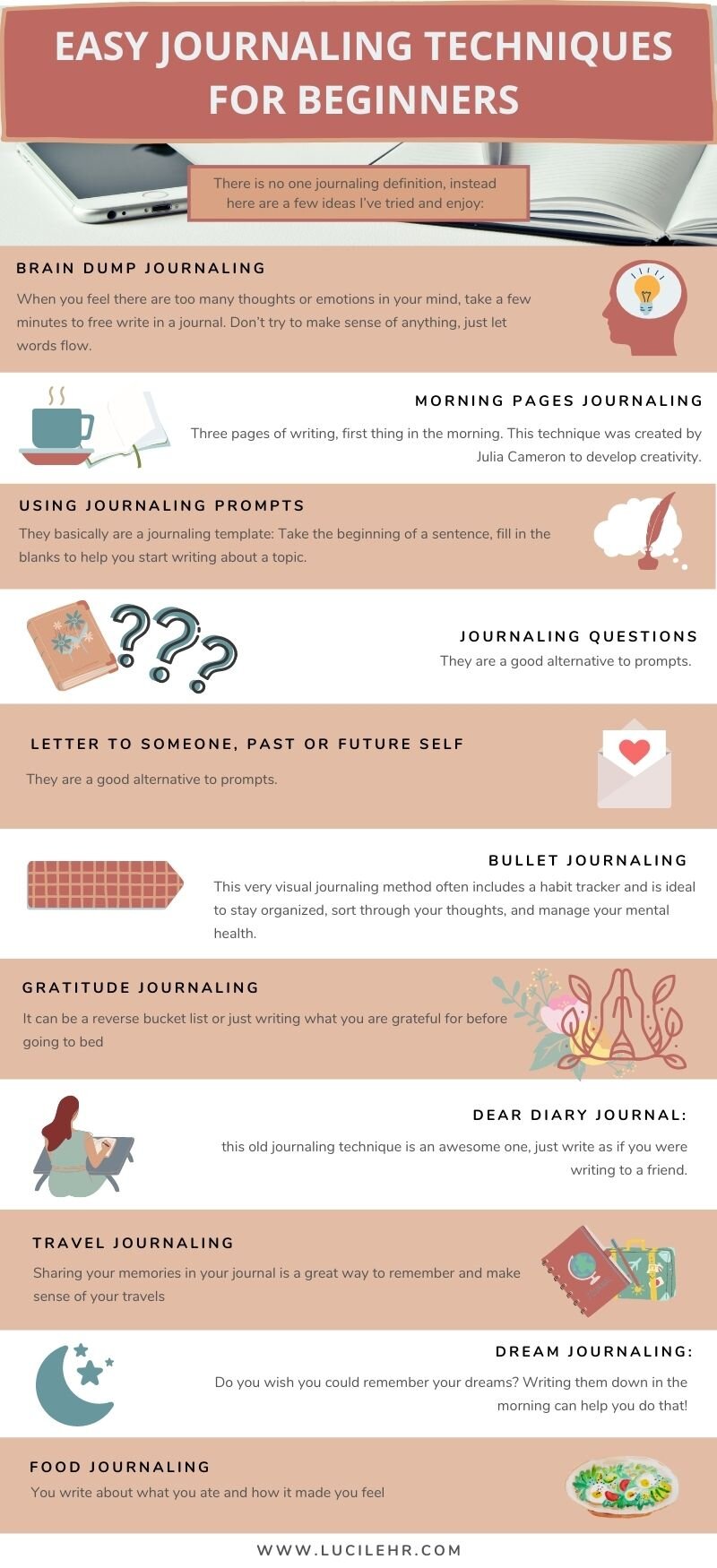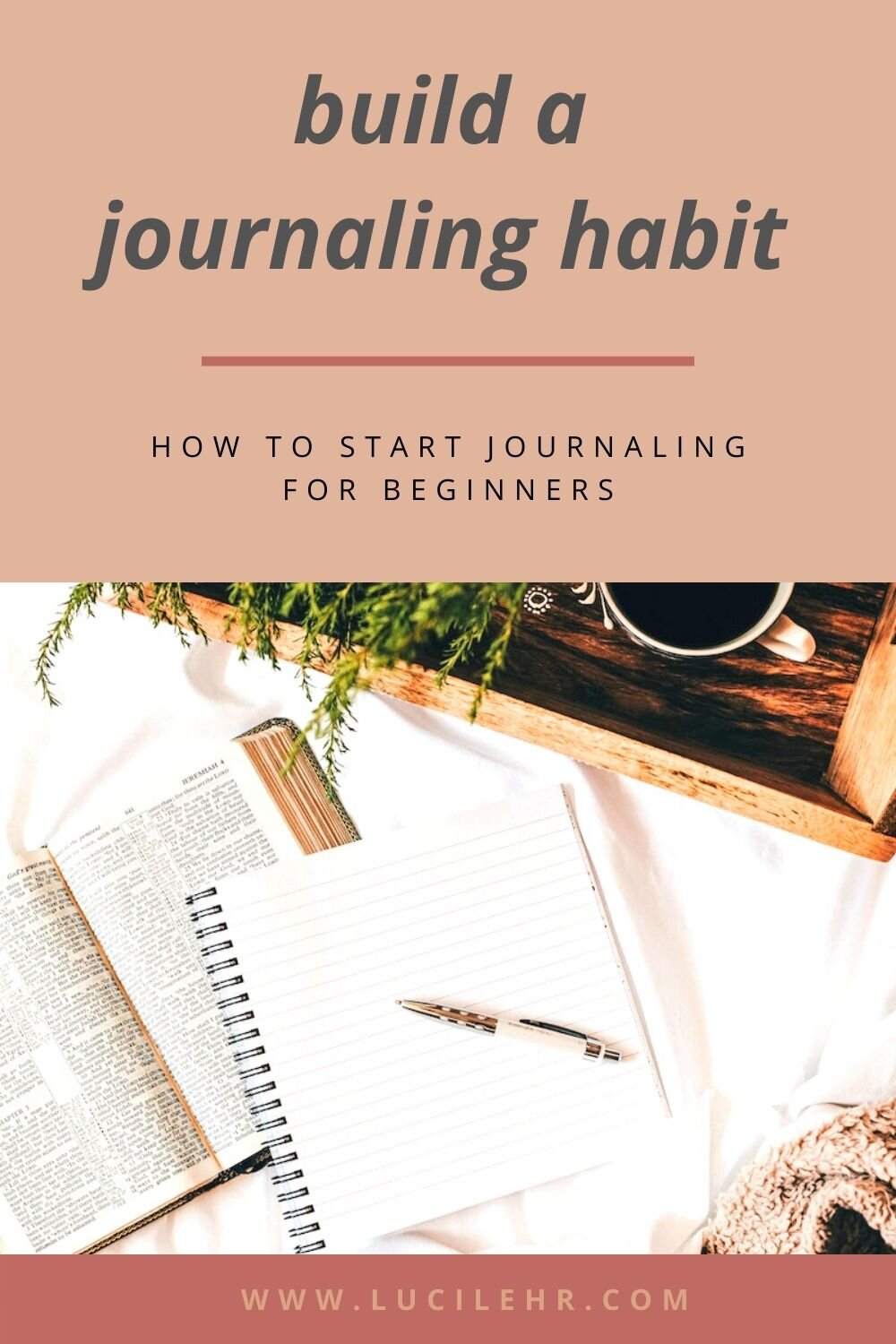Build a Journaling Habit: How to Start Journaling for Beginners
If you’re reading this article you probably kinda know you should have a journaling habit but don’t know where to start. I used to struggle with this too until I used these simple habit-building techniques that made journaling really easy. Now it is part of my evening routine and has totally changed my life.
I’ll show you exactly how to start journaling for beginners, from exactly what to write, to the best minimalist journaling techniques, or even how to form a journaling habit.
Table of Contents
Benefits of journaling:
Want to know why journaling is important? It has so many benefits, including:
Creativity
Mental clarity
Increased positivity
Overall helps you sort through thoughts and feelings
Journaling for mindfulness sparks a ripple effect of change through your entire life, as it helps you understand yourself better and make sense of your experiences. This is why whenever I coach people on any wellness goal I ALWAYS give them daily journaling exercises to do.
Why do you want to keep a journal?
What are your journaling goals? Take some time to come back to your intention as having a strong reason for doing it is the best journaling tip.
What to write about?
There’s no one right way to journal: you need to explore and experiment to find out what works for you. Don’t censor yourself as you’ll be the only one reading it!
Easy journaling techniques for beginners:
There is no one journaling definition, instead here are a few ideas I’ve tried and enjoy:
Brain dump journaling: when you feel there are too many thoughts or emotions in your mind, take a few minutes to free write in a journal. Don’t try to make sense of anything, just let words flow.
Morning pages journaling: three pages of writing, first thing in the morning. This technique was created by Julia Cameron to develop creativity.
Journaling prompts: They basically are a journaling template: Take the beginning of a sentence, fill in the blanks to help you start writing about a topic. Pick a few to do regularly. One I enjoy is “today this made me happy…” click here to see my favorite journaling prompts for self-discovery!
Journaling questions: they are a good alternative to prompts.
Letter to someone, past or future self: Is there something on your mind you can’t express? A letter will help you process these thoughts! The best thing about it is that you can freely speak your mind as you don’t need to send it.
Bullet journaling: this very visual journaling method often includes a habit tracker and is ideal to stay organized, sort through your thoughts, and manage your mental health.
Gratitude journaling: It can be a reverse bucket list or just writing what you are grateful for before going to bed
Dream journaling: do you wish you could remember your dreams? Writing them down in the morning can help you do that!
Dear diary journal: this old journaling technique is an awesome one, just write as if you were writing to a friend.
Travel journaling: sharing your memories in your journal is a great way to remember and make sense of your travels
Food journaling: you write about what you ate and how it made you feel
There are so many other journaling ideas for beginners you can try, you can even create your own way of doing it!
How to journal regularly (really)
It’s easier to stick to a new habit when it’s obvious, enjoyable, and easy, this is pretty straightforward right? Keep reading for a habit-building for journaling how-to.
This method is inspired by Atomic Habits, one of my favorite books.
1. Make it obvious
Implementation intentions: Decide when and where you’ll journal and plan enough time for it. While journaling every day is awesome, you can also do it less often.
Consider habit stacking: This is a technique where you add a new habit on top of an existing one. Maybe you already have another mindful habit you can use as a cue to remember to journal. I personally enjoy doing it after I meditate.
Put your journal in a place where you’ll see it when you need to do your journaling exercises
2. Make it enjoyable
Do something you enjoy at the same time: like drinking hot cocoa or listening to your favorite song
Create a mindful ritual: write in a nice journal, with a cute pen
Do it with someone: maybe your partner wants to journal as well or you can join an online journaling community
3. Make it easy
2-minute habit: when starting out, have a goal to write for two minutes, no more
Have prompts: the biggest life-saver as you don’t need to think about what to write, click here to see a few of my favorites!
Ditch the all-or-nothing mentality: Don’t see missing once as a reason to abandon your habit totally. It is not an absolute obligation but rather something that will serve your intention.
I hope you enjoyed this journaling blog post and now feel inspired to try doing it yourself!




